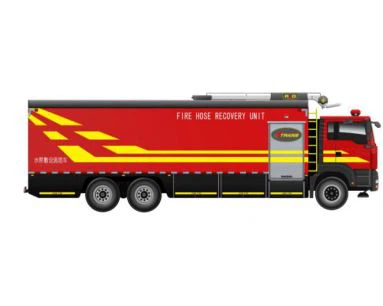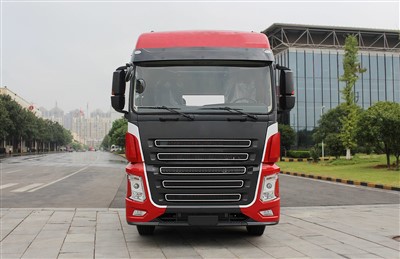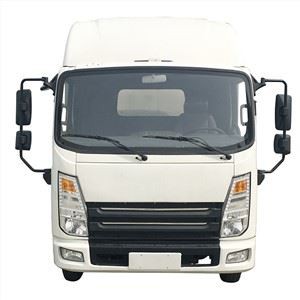Viper Lift Pickup Crane: The Ultimate Guide for Your Lifting Needs

Introduction
The Viper Lift Pickup Crane is an innovative solution tailored for truck owners who require a reliable method to lift and transport heavy loads. Known for its strength, versatility, and ease of use, this crane significantly enhances the functionality of any pickup truck, making it an essential tool for construction, landscaping, and other heavy-duty applications. In this comprehensive guide, we will explore the features, installation, maintenance, comparison with other cranes, and practical applications of the Viper Lift Pickup Crane.
What is a Viper Lift Pickup Crane?
The Viper Lift Pickup Crane is a hydraulic-mounted lifting apparatus designed to be affixed to the bed of a pickup truck. It allows users to hoist, lower, and transport heavy items with relative ease. These cranes have varying lifting capacities, typically ranging from 1,000 to 3,000 pounds, making them suitable for a wide range of applications.
Key Features of the Viper Lift Pickup Crane
1. High Lift Capacity
With a robust construction, Viper Lift Pickup Cranes can typically lift weights up to 3,000 pounds, providing ample support for heavy materials.
2. Compact Design
The compact design ensures that the crane does not take up unnecessary space in the truck bed, allowing users to maintain the truck’s versatility.
3. Easy Installation
Most models come with a straightforward installation process, often requiring no professional assistance. This user-friendly design allows for quick setup and takedown, making it ideal for casual and professional users alike.
4. Hydraulic Operation

The hydraulic mechanism provides smooth operation and ensures precise lifting, reducing the risk of accidents while handling heavy loads.
5. Durable Construction
Constructed from high-quality materials, the Viper Lift Pickup Crane is designed to withstand harsh conditions and heavy usage, ensuring longevity.
6. Versatility
Beyond regular lifting tasks, these cranes can be used for multiple applications, including changeovers in the agricultural industry and construction sites.
How to Install a Viper Lift Pickup Crane
Step-by-Step Installation Guide
- Gather Tools and Materials:
- Wrench set
- Socket set
- Drill (if required)
- Screws and bolts (usually included with the crane)
- Prepare the Truck Bed: Clear the truck bed of any debris and ensure a smooth working surface.
- Position the Crane: Place the crane in the desired location within the truck bed, ensuring that it is well-balanced.
- Install the Mounting Plates: Secure the crane using the provided mounting plates, ensuring a tight fit.
- Connect Hydraulics (if applicable): If the model requires hydraulic connections, make sure to follow the manufacturer’s guidelines.
- Test the Operation: Before using the crane for heavy lifting, test it with lighter loads to ensure proper installation and functionality.
Maintenance Tips for Your Viper Lift Pickup Crane
Regular Inspections
Regularly inspect the crane for any signs of wear and tear, particularly on the hydraulic components.
Lubrication
Ensure that all moving parts are well-lubricated to avoid friction and wear, which can lead to breakdowns.
Cleanliness
Keeps the crane clean from dirt and debris to ensure smooth operation and prolong its lifespan.
Storage
When not in use, store the crane indoors or cover it to protect it from harsh weather conditions.
Practical Applications of the Viper Lift Pickup Crane
1. Construction Sites

The Viper Lift Pickup Crane is invaluable on construction sites, allowing for the easy lifting of heavy materials such as concrete blocks, steel beams, and wood lumber.
2. Landscaping Projects
It helps transport heavy equipment, soil, and other materials required for landscaping, saving time and labor.
3. Agricultural Use
Farmers can use the crane to lift large bags of feed, bales of hay, or heavy farming tools, making fieldwork more efficient.
4. Moving Heavy Items
For individuals moving households or offices, this crane can assist in lifting heavier furniture pieces, appliances, and equipment without the need for physical strain.
Comparing Viper Lift Pickup Cranes with Alternatives
Viper Lift vs. Traditional Cranes

| Feature | Viper Lift Pickup Crane | Traditional Crane |
|---|---|---|
| Mounting Location | Pickup Truck Bed | Fixed Installation |
| Portability | Highly Portable | Generally Not Portable |
| Installation Time | Quick Installation | Ongoing Setup |
| Cost | More Affordable | Higher Initial Investment |
Viper Lift vs. Electric Cranes
While electric cranes provide automated lifting capabilities, the Viper Lift’s hydraulic operation can be more dependable for heavy tasks, especially in remote locations where electricity may not be available.
Cost Considerations
Initial Purchase Price
The price of a Viper Lift Pickup Crane can vary based on lifting capacity and additional features, typically ranging from $500 to $1,500.
Maintenance Costs
Routine maintenance involves minor costs, including lubricants and occasional replacements, which can be significantly less than owning larger fixed cranes.
Cost vs. Benefits
Weighing the purchase price against the convenience, versatility, and potential savings in labor costs clearly illustrates the value of investing in a Viper Lift Pickup Crane.
Frequently Asked Questions (FAQs)
1. How much weight can a Viper Lift Pickup Crane lift?
The lifting capacity generally ranges between 1,000 to 3,000 pounds, depending on the specific model.
2. Is installation complicated?
No, most models are designed for easy installation without the need for professional assistance.
3. Can the crane be removed when not in use?
Yes, the crane can be easily removed and stored when not in use.
4. Are replacement parts available?
Yes, replacement parts are typically available through the manufacturer or authorized dealers.
5. How often should I service my crane?
Regular inspections every few months are advisable, along with lubrication and maintenance as needed.
6. Can I use a Viper Lift Pickup Crane for daily heavy lifting tasks?
Yes, it is designed to handle frequent usage, making it suitable for both professional and personal applications.
